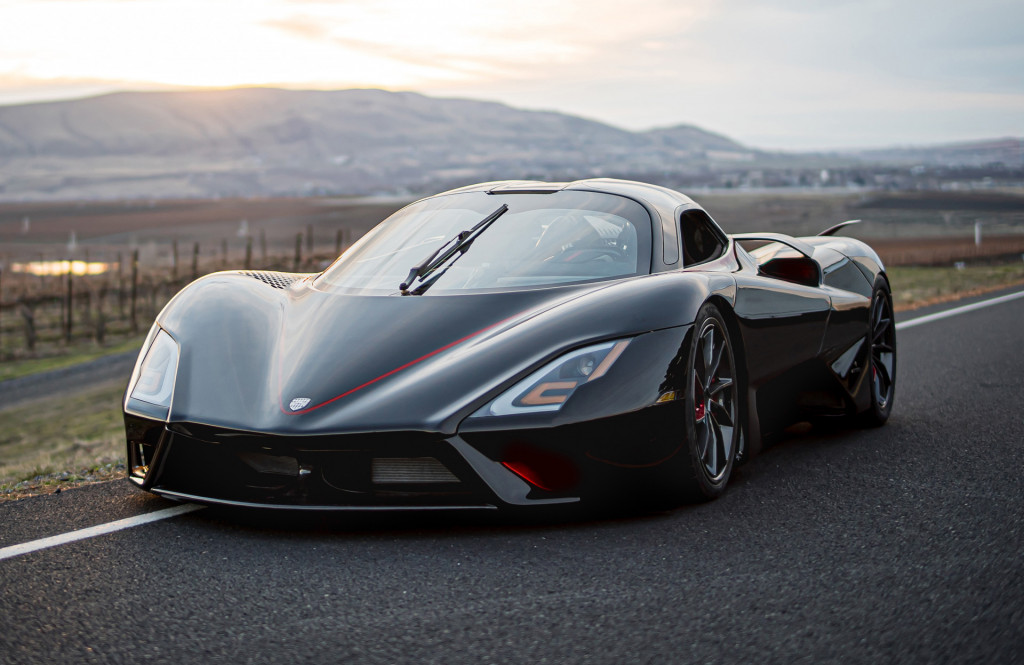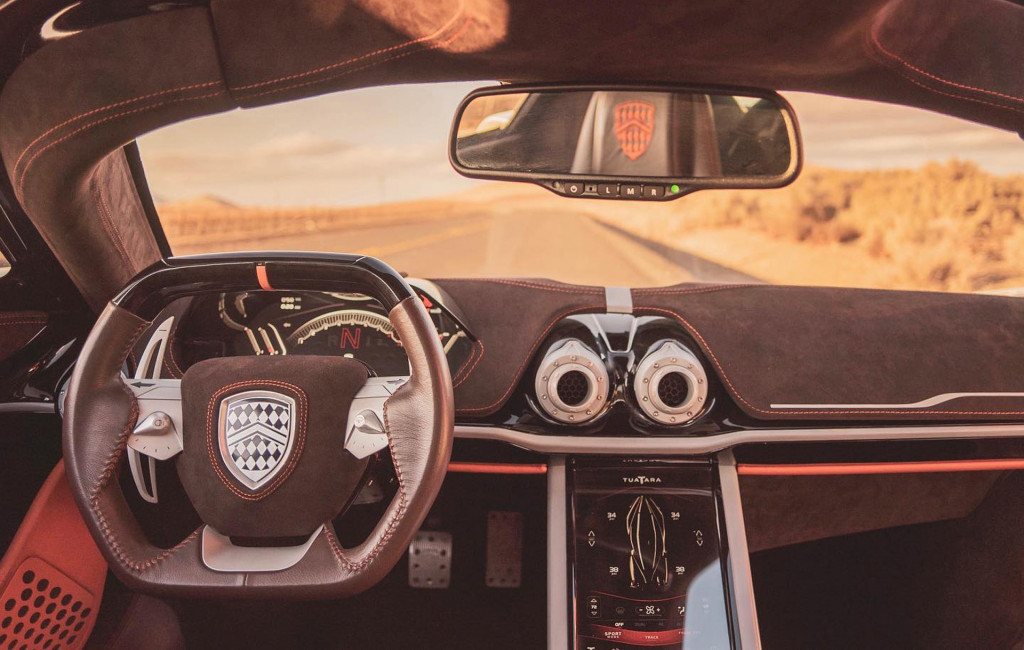As automakers race toward a cleaner, greener future, the topic of synthetic fuels has entered the chat.
On Monday, Washington-based company SSC announced that its Tuatara hypercar is capable of running on syntheiszed methanol which can be generated using carbon-capture technology.
When it debuted in 2018, the Tuatara was rated to produce 1,750 hp on E85 and 1,350 hp on 91-octane pump gas. The car's 5.9-liter twin-turbo V-8 is also capable of running an E85/91 octane blend for a power output of about 1,500 hp.

First production SSC Tuatara
On methanol, SSC CEO Jerod Shelby told Motor Authority the Tuatara's power output is basically the same as ethanol. "The methanol does seem to produce a little better snap throttle and idle qualities, though," Shelby said.
It should be noted that typically speaking ethanol is more energy dense than methanol.
The ability for the Tuatara's powertrain to run on methanol required no design or software changes, according to Shelby. Every Tuatara built along with the cars in production feature fuel system components and sensors that will adapt the powertain after sensing the different fuel.

SSC Tuatara
SSC plans to offer customers the ability to have fuel directly shipped to their garages or the race track through partnerships with performance fuel brands.
In May, SSC expanded the Tuatara's lineup with the Striker and Aggressor models with more power, downforce, and customizable options. Shelby wouldn't comment on how many of the 110 Tuataras set to be built have been produced or sold to date.
SSC isn't alone in looking at synthetic fuels as some automakers evaluate whether the concept could save the combustion engine. Porsche views synthetic fuels as a way to keep classic cars on the road. The German automaker's also been testing synthetic fuel in race conditions this year in its Mobil 1 Supercup racing series. Porsche and Siemens Energy broke ground on a synthetic fuel plant in September in Punta Arenas, Chile. While McLaren's also looked at synthetic fuels as a way to save the internal combustion engine, Mercedes-Benz doesn't view it the solution as suitable for cars, preferring electric vehicles instead.
